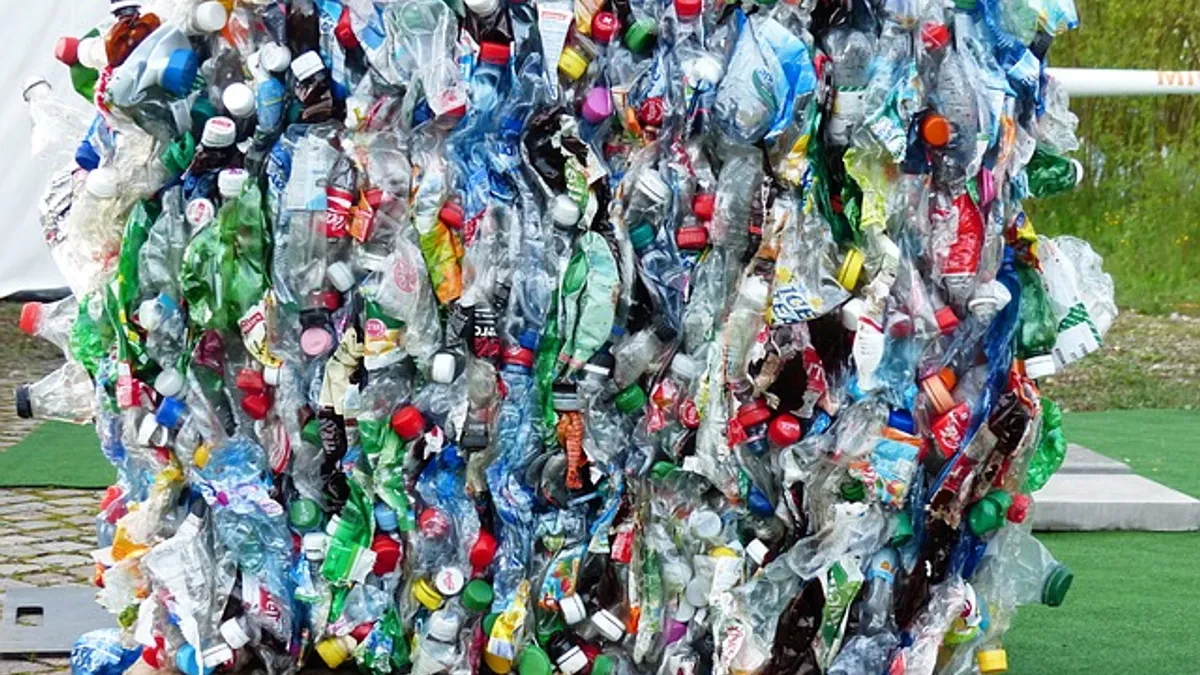Dive Brief:
- East Hartford, CT, saw the amount of plastic film material collected at a local Shop Rite double after implementing a Wrap Recycling Action Program (WRAP) — with a contamination rate of only 16%, according to Assistant Director of Public Works Marilynn Cruz-Aponte. She spoke during an EPA-hosted webinar which focused on improving the quality of plastics recycling, especially in light of China's import restrictions. The idea behind focusing on filmy plastics, like shopping bags, is that educating residents will remove the material from curbside bins, increasing bale yields of higher-value plastic and reducing contamination.
- "Quality matters and we want to see how we can improve the quality of the plastics we collect for recycling," said Sarah Lindsay, public outreach manager for the plastics division of the American Chemistry Council. Lindsay's presentation during the webinar focused on two tools — a common set of terms and phrases, and WRAP.
- The set of terms and phrases, from the Association of Plastics Recyclers, brings with it a "recycling outreach builder" to make communicating with residential and business customers easier. WRAP includes a "roadmap" to help communities, like East Hartford, improve recycling quality.
Dive Insight:
The tools discussed in the webinar are available online for free, and customizable to an individual recycling program. Speakers highlighted successes that cities utilizing the tools had seen, including increased participation and decreased contamination. Similar programs, like those working with The Recycling Partnership, have shown some big successes, like a 32% contamination decrease in Chicago.
With cities and states around the country altering recycling programs because of China's scrap import policies, Lindsay and the other speakers during the webinar were correct: Quality matters. With some material outright banned and with a stringent 0.5% contamination standard for other import material, producing high-quality bales at MRFs is perhaps more important now than ever.
This is especially true because, despite recent efforts by government officials and industry organizations, it appears Chinese officials have no intention of delaying implementation the new policies. Already, it seems the industry is developing new markets in Southeast Asia. As there is some concern that other nations could follow in China's footsteps and implement their own strict standards, it continues to be critical to keep quality high and contamination low. The most effective recycling programs will be ones that combat contamination at all levels, from consumer education and collections all the way through sorting.














